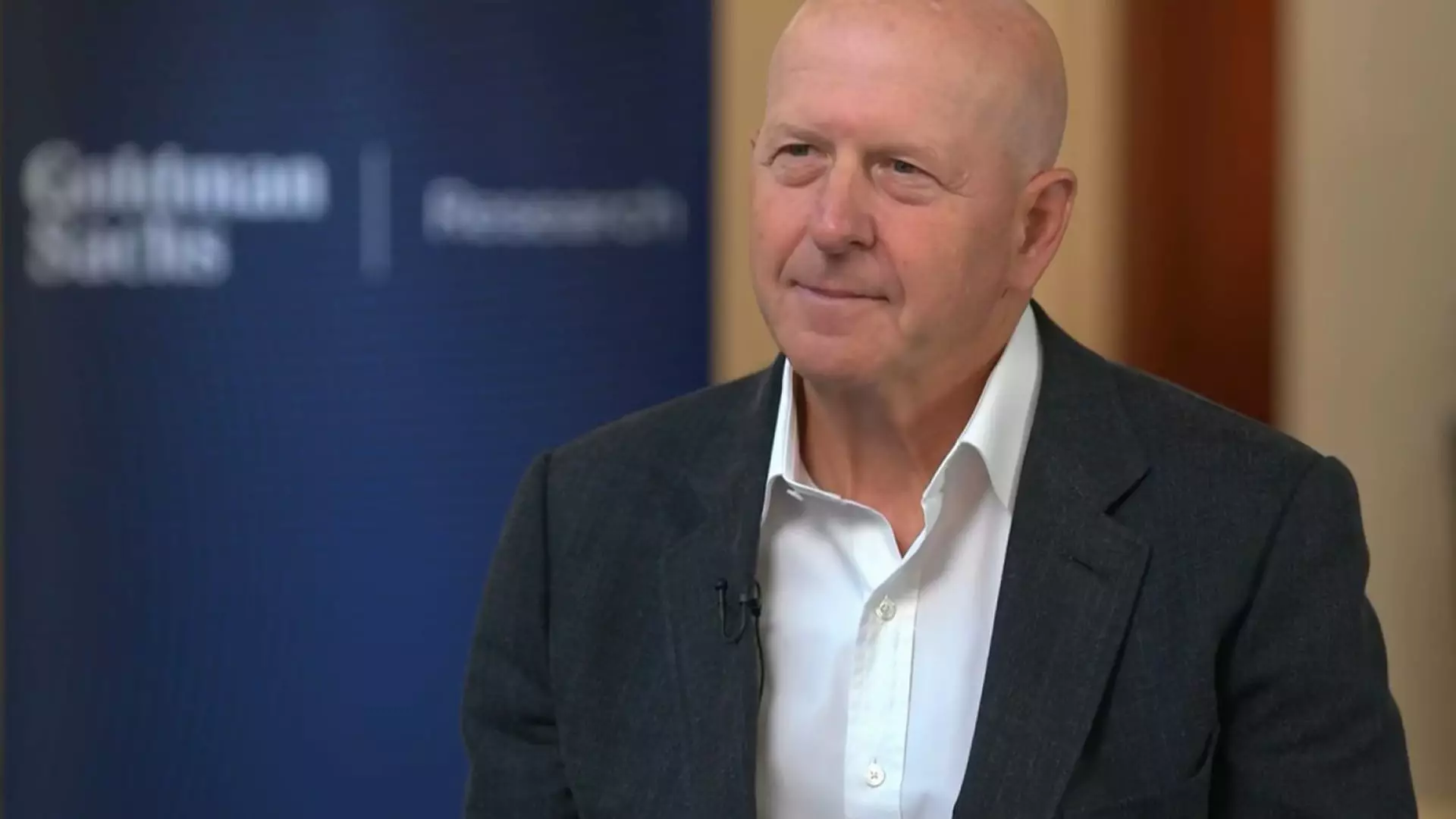Goldman Sachs delivered a striking performance in its first-quarter results, which took analysts and investors by storm. With earnings soaring to $14.12 per share—marking a significant uptick from the expected $12.35—Goldman outshone the market. The bank’s revenue also surpassed expectations, reaching $15.06 billion against the forecasted $14.81 billion. At a glance, this seems like robust financial health, with profit climbing by 15% year-over-year to $4.74 billion. However, these headline numbers may obscure deeper issues that deserve scrutiny.
The cornerstone of this success can be traced to an impressive 27% increase in equities trading revenue, hitting $4.19 billion—around $540 million more than analysts anticipated. Yet one must ask: is this surge sustainable, or are we merely witnessing a temporary spike driven by market volatility? In an ever-evolving economic climate, it is essential to question whether such results are indicative of actual growth or just a reaction to turbulent market conditions.
Uneasy Underbelly: Weakened Revenue Sources
While the equities trading sector has experienced a meteoric rise, other divisions within Goldman Sachs paint a mixed picture. The fixed income division barely scraped by with a 2% revenue increase, falling short of expectations. Investment banking revenues saw a decline of 8%, highlighting a troubling trend that cannot be overlooked. A decrease in advisory revenue suggests that corporate clients are either holding back or reevaluating their financial strategies amidst the uncertainty brought on by political changes.
There’s also concern regarding Goldman’s asset and wealth management division, where revenues declined by 3% compared to the previous year. This downturn signals a hesitancy from investors, likely tied to the decreasing value of their investments in a roiling market. Conventional wisdom dictates that savvy investors with sound portfolios should sustain growth even in turbulent times, yet Goldman’s numbers alert us to a potentially alarming trend: clients might be exiting or altering their relationship with their investments at an increasing rate.
The Political Landscape: A Double-Edged Sword
CEO David Solomon hinted at the broader implications stemming from trade tensions escalated by President Trump’s administration. Although such volatility can boost trading revenues in the short term—thanks to increased market activity—it’s also a reminder of the long-term risks that accompany uncertainty. Solomon’s remarks suggest an underlying apprehension about how these geopolitical shifts might affect corporate confidence.
The data presents a fascinating parallel when compared to rivals like JPMorgan Chase and Morgan Stanley, who similarly reported exceptional trading revenue, skyrocketing by 48% and 45% respectively. However, these gains also point to a market grappling with uncertainty—an indication that, while Goldman is benefiting in the short term, the landscape itself is fraught with potential pitfalls.
The Road Ahead: Is Goldman’s Glory Built on Sand?
As Goldman Sachs emerges from this quarter with startling figures, a robust sense of caution is warranted. The bank’s recent trajectory reflects not just an isolated success but a reaction to broader market forces exacerbated by political churn. The question lingers: will these impressive results endure past the volatility of the current economic climate?
A sense of trepidation persists, especially since markets reflect a knee-jerk reaction to momentary fluctuations rather than a stable foundation for long-term growth. Goldman needs to cultivate resilience beyond just volatile trading revenues. The company’s ability to navigate political uncertainty while maintaining client confidence will be essential in determining whether this quarter’s performance is a sign of a sustainable rebound or simply a bright flash in a frequently stormy sky.
While Goldman’s earnings might light up the financial headlines for now, careful observation will be necessary to understand the full impact of this momentous quarter. The old adage rings true: a bull market can enable great performances, but it’s the ability to weather the storms that will truly define Goldman’s legacy.

